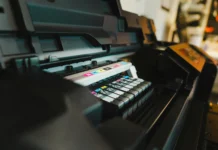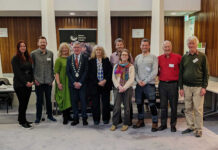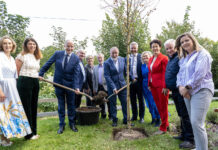
Q: I have tons of items, like an old radio and a lamp, a ripped sleeping bag and a wobbly chair, sitting in the garage doing nothing. Should I chuck them or donate them? Some are broken but I’m not sure if they can be fixed.
A: Sometimes it seems as if the broken gadget and busted household goods pile-up might be part of the human condition. When your vacuum cleaner breaks inexplicably or your old reliable radio suddenly stops working, you might store it away, hoping it will miraculously repair itself.
“For most people, the idea of fixing the thing that’s been broken in the corner of your house is too much hassle,” says Roger Nagle from north Cork. But he has come up with a solution: the area’s first Repair Café, a volunteer-run repair event for fixing, upskilling, and a bit of socialising.
The concept of the repair café is well-established, having started in the Netherlands in 2009, Nagle explains. The intention was part-community building, part-reducing consumptions rates, with a focus on teaching skills, curbing waste, and making human connections.
“It’s about bringing people together and sharing expertise,” Nagle says, “and the other half, stopping things from getting dumped by teaching people to repair.”
As a regular visitor to the recycling centre, Nagle knows that “the amount of good quality stuff we’re trashing is horrifying, it’s tormenting.”
Why are lovely lamps winding up at the skip? “A couple of reasons,” Nagle says. “We’re richer, we want nice stuff, we don’t have time to consider repairing, and the options for accessing repair services are reducing; very few places will even consider repairing electrical goods.”
Household electrical is one of the biggest environmental problems – “they are such energy and material-intensive items to make in the first place,” he says. “The kettle or toaster or coffee machine consumes a lot of resources to produce and its lifetime is too short if we dispose of it at the first sign of trouble.”
MONTHLY IN MALLOW
Nagle’s café got going in May as a free monthly event at the Mallow Library, running from 11am-1.30pm on a Saturday morning (the next is on October 7). Volunteers are perched at tables ready to fix and mend. You bring in your goods – bikes, household items, woodwork, fabric repairs, electrical equipment or electronics, they are up for it all. The only requirement, is that you can carry it through the door!
But a repair café is more than just a drop off.
“It’s not about getting that toaster fixed,” says Nagle. “It’s about showing that person how to troubleshoot and repair. Like they say, it’s not giving them the fish but showing them how to catch.” You sit beside a volunteer repairer and work together to find a remedy.
“At minimum, you see it’s easy to open, do some basic troubleshooting, and find a simple fix,” adds Nagle. “Fixers are generally quite enthusiastic about trying to explore and tease out the problem and see what they can do.”
THE RIGHT TO REPAIR
There are several thousand repair cafes around the world, Nagle says, especially in the UK and the Netherlands, with one in Dublin and one in Cork. Some of the motivation comes from the Right to Repair movement, making progress across the EU, forcing companies to back down from a position that “we created this, you bought it, you did not buy the rights to open this up and repair it,” explains Nagle. The movement seeks to force manufacturers to release information, give consumers access to what they’ve purchased, and make spare parts available.
On top of that, “we’re being taught that it’s easier to throw it away,” says Nagle. “There is strong commercial incentive around building it to fail, convincing you of the idea that there’s always a newer and better one when that one fails, don’t hang on to this obsolete technology, it’s not as cool as the new one.” Which also means, “skills are disappearing and interest in repair is fading.”
A fancy 10-year-old coffee machine was donated to Nagle’s repair café a couple of weeks ago. The first problem? Anti-tamper screws. “If you’re a budding fixer, you may struggle to get past those,” he says.
SHARING WISDOM
Nagle hopes to start a repair café in Fermoy and pass it on to a repair-lover. “If you can find enthusiastic fixers, a Repair Café could be a very empowering thing.” He points to resources like repaircafe.org and recommends ifixit.com. Use the wealth of information online, he says: “you don’t need to know all the stuff, just to be willing to try.”
Nagle’s bigger vision is to set up a centralised facility for dropping off things too good to go to the amenity site, with a team of volunteers fixing and sharing wisdom.
In the meantime, he has seen community-building in action.
“It’s quite a friendly, interactive, social situation,” he explains. “Everyone who is volunteering is delighted to keep going,” and those arriving with goods are “so grateful and enthusiastic and appreciative” – with credit given to the library network, who reached out.
“I hear great conversations going on over broken items, it’s not all, ‘I removed this screw.’”
Your broken lamp might need a part or you’ll be told why it can’t be fixed. More likely, “they find a very simple problem and it gets repaired right there, which happens a lot and is very satisfying for everyone involved.”
ECO QUERY?
Direct any of your eco related queries for Alissa’s attention, to info@avondhupress.ie (with ‘Alissa’s Eco-advice’ in the subject line)











